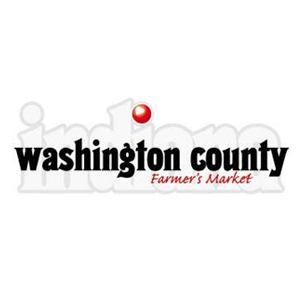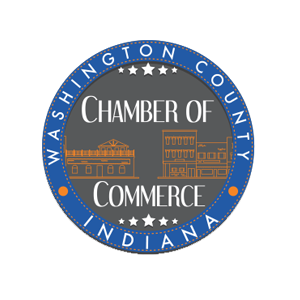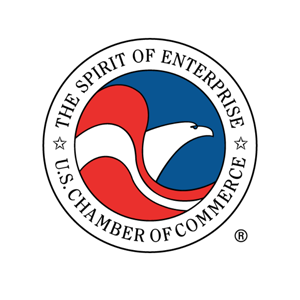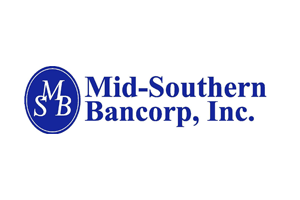
The Washington County Farmers’ Market will open with local goods raised and produced within Washington and adjacent counties on Saturday, May 11, 2024. The market will continue on Saturdays from 8:30 am – 12:00 pm at the Washington County Justice Center parking lot at 801 Jackson St. in Salem through October. When produce is more plentiful later in the growing season, the market will also open on Tuesday evenings from 4:00-6:00 pm.
New vendors are encouraged to participate in the market. Items for prospective vendors to consider are: fruits, vegetables, dried/fresh herbs, plants, cut flowers, honey, eggs, unpopped popcorn, meats, etc. Some minimally processed food items can also be sold and include: maple syrup, jellies/jams/preserves/butters, sorghum, frozen persimmon pulp, dried fruits/vegetables, cider, etc. Baked goods such as breads, cakes, and cookies as well as wood, natural and homemade crafts can also be sold at the Farmers’ Market. All products must meet state and local regulations. If a prospective vendor has questions about product requirements, contact the Washington County Health Department at 812-883-5603.
Vendors are required to sign a Washington County Farmers’ Market contract. The contract is available on the Purdue Extension – Washington County website at https://extension.purdue.edu/Washington or by contacting the Extension office at 812-883-4601.

- Local Economic Boost: Money spent at small businesses recirculates within the community, creating a multiplying effect benefiting everyone.
- Job Creation: Small businesses are primary job creators, strengthening the economic backbone of their towns and cities.
- Character and Charm: Small businesses offer a distinctness and personality that chain stores can never replicate.
- Customer Service: Often, small business owners go above and beyond to provide personalized service and build relationships with their customers.
- Stagnation vs. Growth: A community without small businesses giving back risks becoming stagnant. New blood, fresh ideas, and the entrepreneurial spirit found within small businesses are vital catalysts for economic growth.
- Preservation and Progress: Without growth, there are shrinking tax bases and decreased funding to preserve the things that make a community special. This can include the historical integrity of areas like Downtowns, often held up by a District Authority (DDA). In efforts to protect history, communities may inadvertently stifle progress by keeping new, innovative businesses out.
- Community Investment: Small businesses often take pride in their towns and want to see them succeed. Giving back – whether through charitable donations, sponsorships, or volunteer work – demonstrates a commitment to building a better future for everyone.
- Shopping there intentionally: Choose the local store when possible, even if it means a slight price difference.
- Advocating for small businesses: Encourage local policies that support them such as your local Chamber of Commerce and other Economic Growth organizations.
- Holding businesses accountable: Express appreciation for small businesses that give back and respectfully suggest that others could do more.
- Small businesses employ nearly half (46%) of the American private sector workforce and are credited with creating 63% of new jobs from 1995 to 2021.
- Small businesses often stimulate job creation in other sectors through demand for their goods and services, fostering a multiplier effect.
- There are 33.2 million small businesses in the US, accounting for 43.5% of the gross domestic product (GDP).
- Thriving small businesses contribute to higher local tax revenue, which communities can use for various initiatives, including infrastructure development, education, and community programs.
- A study by the Kauffman Foundation found that communities with higher rates of new business creation had higher levels of civic engagement and stronger social cohesion.
- Small businesses contribute to the unique character and personality of a community, offering diverse products and services not readily available in chain stores.
- Despite challenges, the number of small businesses in the U.S. has actually doubled since 1982.
- Since the pandemic began, there has been a surge in new business applications, with over 16 million filed since 2021, resulting in 2.8 million new businesses established.
- Interestingly, the average small business is actually operated by a single founder, highlighting the strong individual drive for entrepreneurship in the US.
- While financial gain is a factor, a surprising 60% of individuals start businesses to be their own boss and have greater control over their work.
- Despite the high number of new businesses, the reality is that 50% of small businesses fail within the first five years.
- While many small businesses contribute significantly to their communities, there's still room for improvement. Only 65% of small businesses are reported to be profitable, indicating the need for continued support and resources to help them thrive.

IEDC funds vision to create a thriving ecosystem for startups and scalable businesses in the Uplands Region
Bloomington, Ind.—The Mill, Bloomington’s nonprofit center for entrepreneurship, announced today that it will be piloting a new accelerator program in the Uplands Region. Indiana Uplands Accelerator is a transformative initiative aimed at igniting the entrepreneurial spirit and fostering economic development within the Uplands Region. This region, encompassing counties like Monroe, Dubois, Washington, Owen, Brown, and Lawrence, boasts untapped potential in terms of innovation and economic growth. The ultimate vision is to create an ecosystem where startups and scalable businesses thrive, leveraging the unique resources and talents of the region.
“There is so much hidden talent across the uplands region,” said Andy Lehman, Head of Accelerator Programming at The Mill. “We want to be a resource and support as they are building their business and driving economic development in their counties. It’s exciting to be building out this network of support amongst the uplands region.”
The pilot accelerator program is being funded thanks to the Indiana Economic Development Corporation (IEDC). The grant is part of the IEDC’s Community Collaboration Fund (CCF) Pilot Program – meant to power 16 community-led projects focused on entrepreneurial education, connection and acceleration across Indiana. It is one of many new entrepreneurship-focused initiatives the state has rolled out in recent months in an effort to further grow Indiana’s entrepreneurial activity and support the growth and success of startups and small businesses.
“We’re grateful for our continued partnership with the IEDC,“ said Pat East, Executive Director of The Mill. “By addressing the specific needs of local entrepreneurs, fostering a collaborative ecosystem, and empowering individuals to pursue their entrepreneurial ventures, we believe that this program will not only invigorate the region’s economy but also strengthen its social fabric.”
This 8-week accelerator will give all participants the opportunity to connect with mentors and subject matter experts from across the region covering topics like marketing, sales, financials, investment pitch decks, legal, and accounting. They will also receive weekly 1:1 coaching with a startup expert. The Mill is hopeful that this will ignite a new spirit of collaboration and innovation in the Uplands Region and that the effects of this accelerator will be felt for years to come.
Anyone interested in participating can learn more and apply at dimensionmill.org/indiana-uplands-accelerator/
By: Washington County Community Foundation

The latest MetLife and U.S Chamber of Small Business Index has identified issues that many small businesses are confronting in the current economic climate.
Small businesses are the economic engine that runs countries across the globe. Such businesses comprise a larger share of the economic landscape than big firms. Despite how essential a thriving small business sector is, such firms are vulnerable to the fluctuating economic conditions, particularly in the aftermath of the global pandemic.
According to ValuePenguin, powered by Lending Tree, 86 percent of small businesses are facing economic challenges as of 2022. The latest MetLife and U.S Chamber of Small Business Index has identified issues that many small businesses are confronting in the current economic climate.
Inflation: The Index indicated inflation is the number one concern for small businesses today, with 53 percent of firms reporting this is the biggest challenge they are facing. When the survey was conducted, inflation was up 30 percentage points year-over-year. Also, according to Goldman Sachs' 10,000 Small Businesses Voices survey, more than 76 percent of respondents said the financial health of their business had been hurt by inflation in recent months.
Supply chain issues: Larger corporations may be able to source their products from many different vendors to keep shelves stocked, but smaller businesses often experience difficulties when items become unavailable. An Oracle survey reported that 80 percent of consumers would stop buying from a brand entirely if they experienced delays or shortages in their orders. This has been troubling to small businesses who have found it harder to compete with larger firms amid supply chain disruption.
Revenue generation: As the costs of supplies and labor has risen due to inflation, small businesses have struggled to generate revenue. The U.S. Chamber of Small Business reported that, in the fourth quarter of 2022, nearly seven in 10 small business owners said they raised prices to cope with rising inflation as a measure to help mitigate revenue lags. Even after raising prices, certain small businesses have been having trouble breaking even.
Rising interest rates: Small business owners who rely on loans and credit to finance their business operations have been hit hard by the rising interest rates the Federal Reserve has been implementing to stem inflation. These rising rates, coupled with revenue struggles, are added costs to doing business.
Recruitment and retention: Finding and keeping quality employees has been challenging for some time. This has been exacerbated by the fact that everyone is feeling the pinch of rising costs, and individuals need jobs that will offer salaries and benefits that can help them make ends meet. This means that employees may be lured away by the prospect of better pay at big box businesses that may have more available capital to pay employees. In addition, large firms can provide access to less expensive health care plans because they are servicing a greater number of employees.
Small businesses are facing considerable obstacles in the modern economy. Consulting with a business advisor may help entrepreneuers solve these issues.

Mid-Southern Bancorp, Inc. (“Company”) (OTCQX:MSVB), the holding company for Mid-Southern Savings Bank, FSB (“Bank”), announced that its Board of Directors declared a quarterly cash dividend of $0.06 per share on the Company’s outstanding common stock. The cash dividend will be payable on February 23, 2024 to shareholders of record as of the close of business on February 9, 2024. The declaration and payment of future dividends to holders of the Company’s common stock will be at the discretion of the Board of Directors, and will depend upon many factors, including the Company’s financial condition, earnings, capital requirements of its businesses, legal requirements, regulatory constraints, industry practice, and other factors that the Board of Directors deems relevant.
About Mid-Southern Bancorp, Inc. and Mid-Southern Savings Bank, FSB
Mid-Southern Bancorp, Inc. is the holding company of Mid-Southern Savings Bank, FSB, which is a federally chartered savings bank headquartered in Salem, Indiana, approximately 40 miles northwest of Louisville, Kentucky. The Bank conducts business from its main office in Salem and through its branch offices located in Mitchell and Orleans, Indiana and loan production offices located in New Albany, Indiana and Louisville, Kentucky.
SalemLeader.com
Leader Publishing Company of Salem, Inc.
P.O. Box 506
117-119 East Walnut Street
Salem, Indiana. 47167
Phone: 812-883-3281 | Fax: 812-883-4446
Business Hours:
Mondays through Fridays, 9:00am - 5:00pm
News:
news@salemleader.com
Office:
office@salemleader.com
Publisher:
publisher@salemleader.com
Business
- More Business News
- Go To Guide
- Business Directory
- Auctions
Education
- More Education News
Opinion
- Editorials
- Letters to the Editor
- Columns
- Unsung Heroes
- Days Gone By
- In the Garden
- Guest Columns
- Reader's Poll
- Salem Leader Forum
- Questions and Answers
Church
- Bible Aerobics
- Church News
- Church Directory

